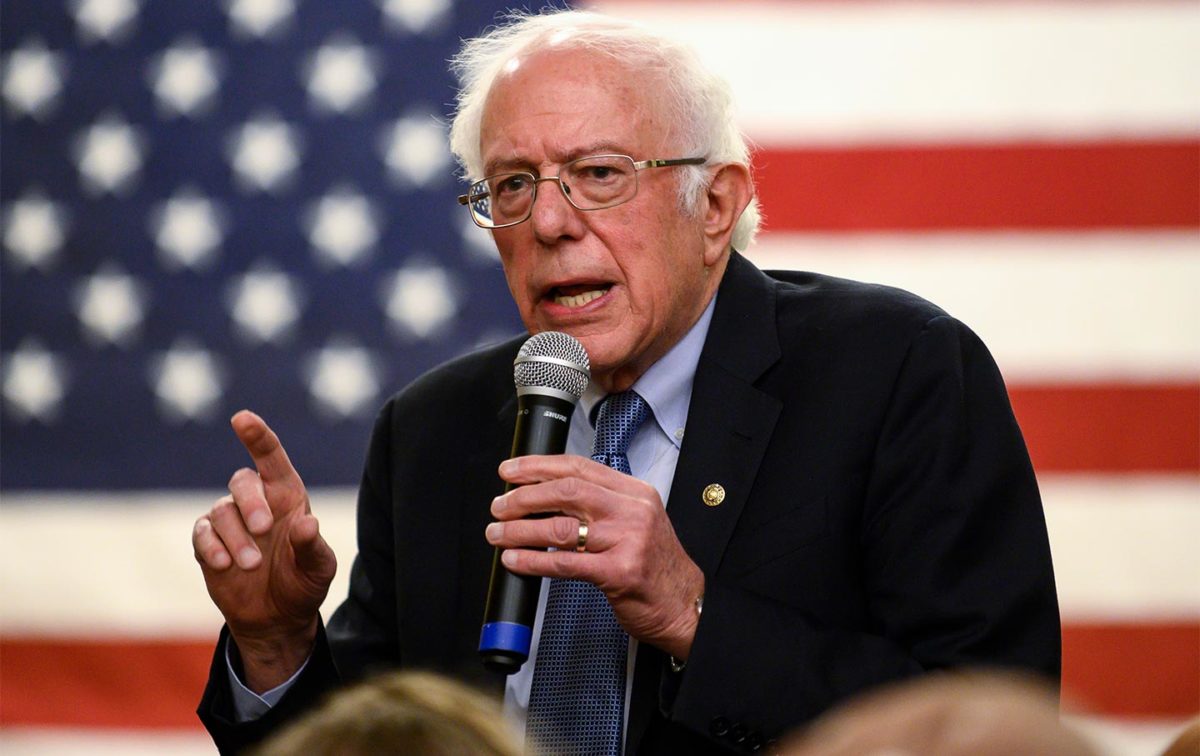Economists call out politically motivated attacks to prevent serious exploration of universal health care

Last week we wrote about the renewed national debate on universal, publicly financed healthcare, and a highly disingenuous set of narratives that The New York Times, among others, has been pushing to stifle demands for universal health care and other fundamental changes in the nation’s priorities. In the last week, much more has been said, so we want to offer a quick recap.
Following the Times article we wrote about, four economists who formerly headed the Council of Economic Advisors under Presidents Clinton and Obama (who some are calling “the Gang of 4”) threw fuel on the fire by publishing an open letter to Democratic Presidential hopeful Bernie Sanders and economist Gerald Friedman criticizing them for making “extreme claims” based on “no credible economic research.” (Friedman, a Hillary Clinton supporter, recently published an independent analysis of Sanders’ health care plan that projected universal, publicly financed health care would increase employment and produce major economic growth.) Economist and Times columnist Paul Krugman quickly followed suit with a scathing column calling Friedman’s analysis “horrifying,” “embarrassing,” and “voodoo.”
This generated outrage and censure from many economists focusing on two key points. First, many are arguing that the Gang of 4 and Krugman are making deceitful arguments driven by political motivations, not economic analysis. Second, they’re making clear that the whole debate isn’t over health care at all, but over the broader questions of whether long-standing understanding of economic growth still hold, that government stimulus drives economic expansion and the U.S. economy is overdue for a big expansion following the Great Recession.
We at NESRI published a press release combining some of the best quotes economists have published in the last week with original quotes that we solicited, and the economics magazine Dollars & Sense has published two lists of commentary that has come out in the last week on all of this. Here are some highlights of what economists are saying:w
- James Galbraith, who was Executive Director of the Joint Economic Committee from 1981 to 1982, wrote in an open letter that Friedman’s analysis used the very economic model the gang of 4 favor, and he criticized them for being unfair and dishonest, abusing their power and criticizing Friedman without giving his paper a rigorous review. “What the Friedman paper shows,” wrote Galbraith, “is that under conventional assumptions, the projected impact of Senator Sanders’ proposals stems from their scale and ambition. When you dare to do big things, big results should be expected. The Sanders program is big, and when you run it through a standard model, you get a big result.”
- Ron Baiman, Assistant Professor of Economics at Benedictine University, writes that Friedman “conservatively uses standard techniques” of economic analysis, and that no one criticizing him has found any errors in his calculations. The Gang of 4, he says, “appear to believe that their status entitles them to a blanket dismissal, without a shred of argument or analysis, of a standard economic analysis of a raft of economic proposals the scale and scope of which have not been seen since the New Deal.” He asserts, “No one assumes that Bernie’s economic program will be passed as currently conceived. The fate of these proposals depends on the power of the ‘political revolution’ that the Sander’s campaign is leading. … This is not a technocratic economic debate. It’s a political and ideological debate.”
- J.W. Mason, Assistant Professor of Economics at John Jay College of Criminal Justice, offers an excellent explanation. “Asking whether Friedman’s projections are reasonable, Mason writes,
- William K. Black, Associate Professor of Law and Economics at the University of Missouri-Kansas City and Editor-in-Chief of and Contributor to New Economic Perspectives, gives an excellent summary of the debate between economists over the dominant “standard model” of economic forecasting and over how much government stimulus would expand the U.S. economy. Black accuses the Gang of 4 and Krugman of abusing their authority and status to try to smear Friedman, and writes, “Friedman’s modeling of Bernie’s plan is so terrifying to the Gang of 4 and Krugman because it shows – under the orthodox economic models – that the government can be a powerful engine of producing ‘huge beneficial impacts.’”
Some journalists have published significant pieces too:
- Doug Henwood writes for the national media watchgroup FAIR that both the Times article and Krugman’s column are dishonest and politically motivated.
- Matthew C. Klein writes for the Financial Times that it’s hard for anyone to project how policies like universal, publicly financed health care would affect economic trends. Looking at Friedman’s projection that universal, publicly financed health care would unleash 5.3% economic growth by putting money in people’s pockets and driving spending and employment, Klein writes, “ We have no idea if this is correct … But it isn’t obviously wrong, in the way suggested by an incomplete group of leading Democratic economists. … Our point is a simple one: a prolonged period of rapid growth in the US is plausible, with the right policy mix. The burden of proof should be on those who say otherwise.”
